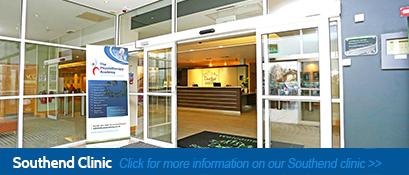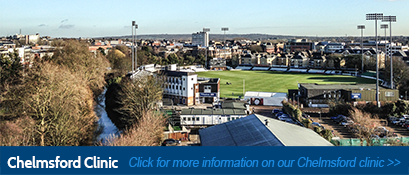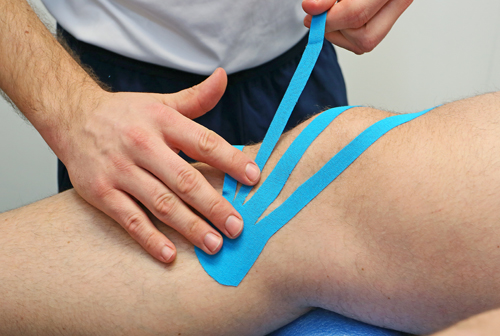Hip Pain
What is it?
Hip pain of less than two weeks commonly has a simple explanation, for example an inflamed tendon or a strained muscle. Hip pain that has been present for a longer period of time is more commonly associated with specific conditions such as osteoarthritis and trochanteric bursitis.
What we do?
If you have sustained a specific injury, or your hip pain has been present for more than two weeks, we would advise that you come and see us for a full assessment. We will ask you questions about your hip pain regarding severity and aggravating activities. We will also want to know about how your hip pain started, how it affects your activities of daily living, the presence of any night pain and any limit to your walking distance.
A thorough examination of your hip will then be performed to assess how it moves and the control, strength and stability of the structures around your hip joint.
This information will then give us enough detail to diagnose your condition and plan a treatment and management program.
If we feel there is a need for further investigations such as x-ray, blood tests or MRI we can help you organise this or contact your GP to start the process via the NHS pathway.
What the benefits are?
Physiotherapy is beneficial for assessing and treating a variety of hip conditions including:
- Osteoarthritis
- Rheumatoid arthritis
- Ankylosing spondylitis
- Hip fractures
- Pain referred from the back
- Trochanteric bursitis
- Gluteal tendinopathy
- ‘Snapping’ or ‘clicking’ hip
- Psoas or iliopsoas tendinopathy
- Acetabular labral tear
- Hernia
- Pain associated with gynaecological problems.
How can we help?
Rest is not recommended for more than a few days. As soon as it feels comfortable you should start some very gentle exercise to maintain range of motion, ease stiffness and promote strength. This helps get your hip back to normal as quickly as possible.
Physiotherapists will also be able to tailor an individual treatment and management plan guided by your assessment findings to reduce your symptoms, correct abnormal biomechanics exacerbating these symptoms and return you to normal activities as soon as possible. Treatment may involve specific exercises to maintain or improve strength, gait re-education, manual techniques to joints and soft tissue, acupuncture, hydrotherapy, electrotherapy, muscle stimulation and full rehabilitation programs.
What should you do?
If your pain was of gradual onset with no injury associated you should try simple self-help treatments for two weeks to see if the symptoms will settle on their own. If the pain is severe or it hasn’t improved in this time you should seek expert assessment either with The Physiotherapy Academy or your GP.
Earlier assessment and intervention should be sought if the pain is getting worse, you had a fall or injured your hip, you have restrictions to everyday activities or you are feeling unwell.
Osteoarthritis
What is it?
Osteoarthritis is the wear and tear or degeneration that affects your joints. It commonly affects the knee, hip, base of thumb and big toe. It develops through damage to the cartilage covering the ends of your bones, causing cartilage thinning and bone thickening. Bony spurs may grow at the sides of the joint called osteophytes, the joint may swell due to synovial thickening and the knee may become stiff due to the capsule and ligaments tightening.
Symptoms commonly experienced with osteoarthritis include: pain, stiffness, a creaking or crunching sensation, swelling and reduced function. There are many risk factors for osteoarthritis and it is often a collection of these that eventually lead to the condition. These include age, obesity, female gender, previous joint injury, joint abnormalities in childhood and genetic factors.
What we do?
The team at The Physiotherapy Academy will be able to help diagnose your condition. There are many different types of arthritis and it is important that it is correctly diagnosed, as some need very different treatments. Diagnosis is usually based on your symptoms and the physical examination.
The Physiotherapist will be able to check for crepitus, swelling, range of motion, joint instability, reduced muscle strength, joint line tenderness, angulation changes and bone thickening.
How can we help?
It is very important with osteoarthritis to keep your joints moving, preventing too much joint stiffness and muscle wasting. The right balance is need to be found between exercise and rest. We can help you find this balance and give you specific exercises to help maintain movement and function without exacerbating your pain.
In particular it is important to carry out strengthening exercises for the muscles around the joint as these control the joints movement, increase joint stability and protect the joint. Furthermore it has been shown that strong muscles reduce osteoarthritic pain.
Swimming can be a very useful form of exercise for osteoarthritis and we at The Physiotherapy Academy will be able to teach you some specific exercises to carry out in the water. We can set you up a hydrotherapy program that supports the weight of the body, reduces impact through the joint and is carried out in warmer water to help reduce pain and stiffness.
Acupuncture has also been shown to relieve symptoms of osteoarthritis and this is a treatment option at our clinics.
What should you do?
The main things you can do to help yourself include keeping active and exercising, maintaining a low and steady weight, take any pain relief prescribed by your GP, reduce the strain on your joints with activity modifications and seek help from our team at The Physiotherapy Academy.
To arrange an appointment or speak to a physiotherapist, call or email on:
Southend on Sea: 01702 521 042 or info@physioacademy.co.uk
Chelmsford: 01245 254 069 or chelmsford@physioacademy.co.uk





























